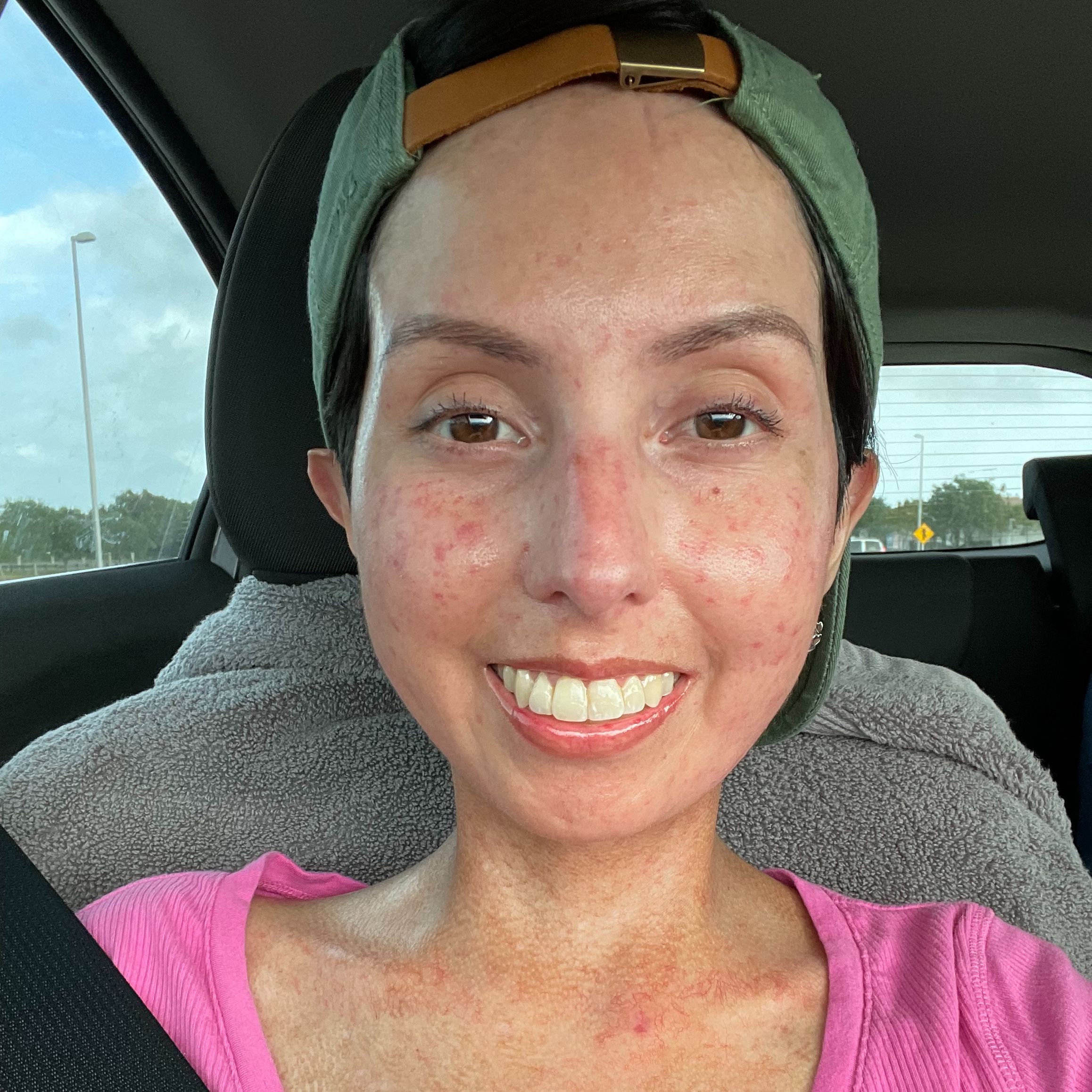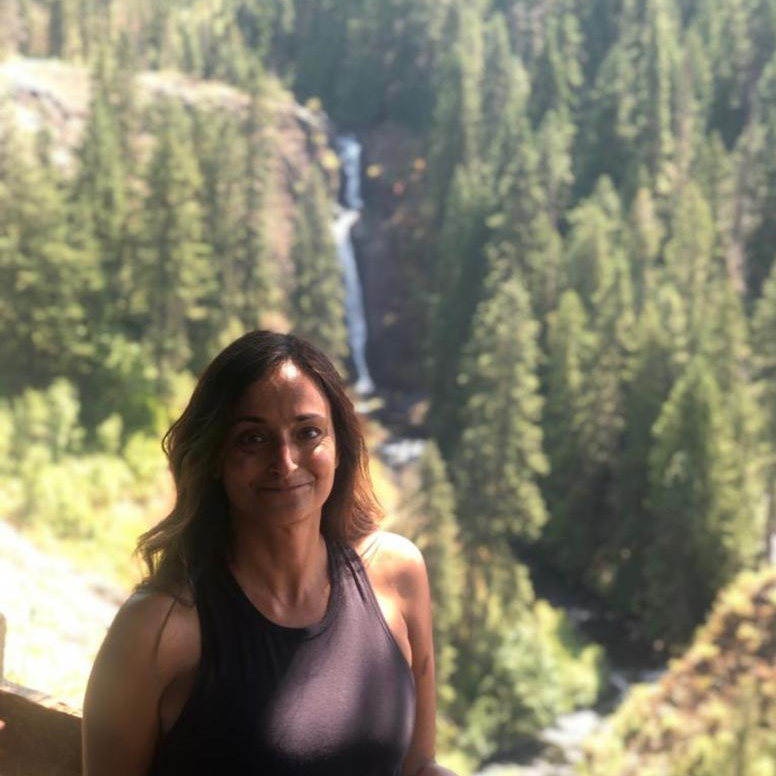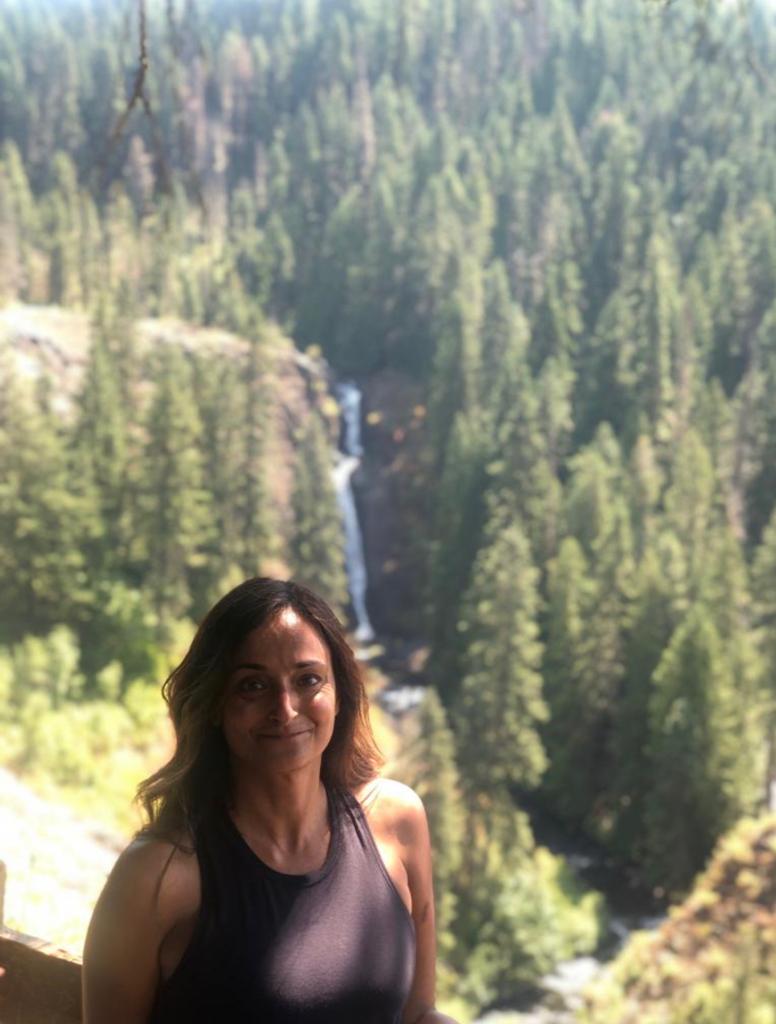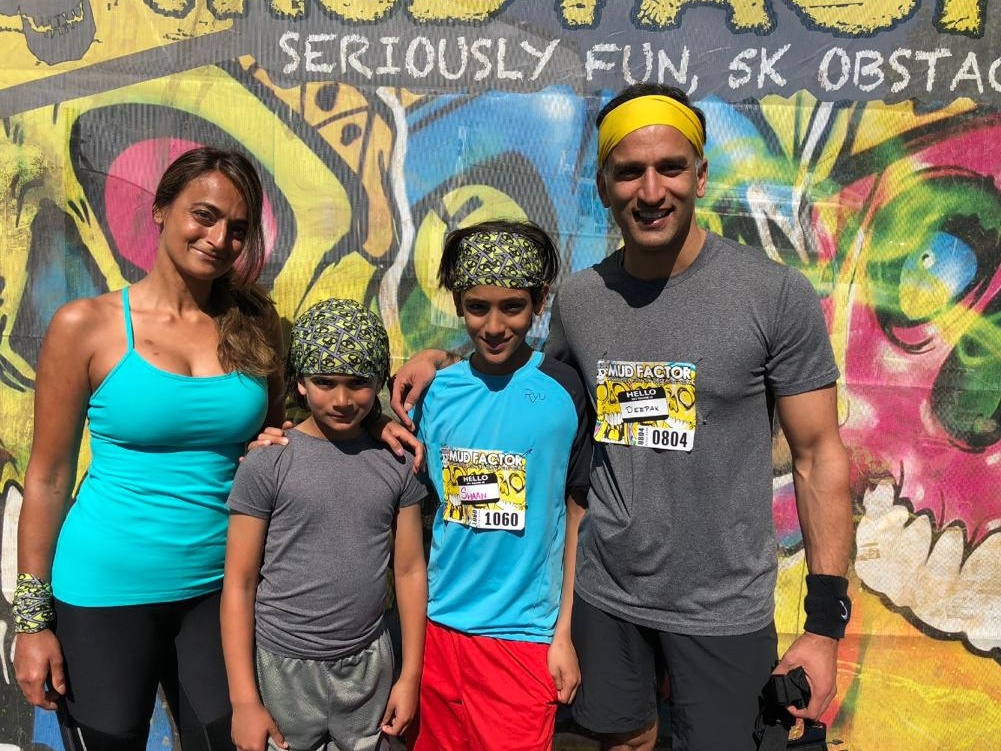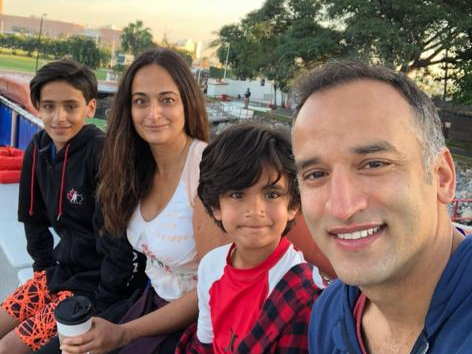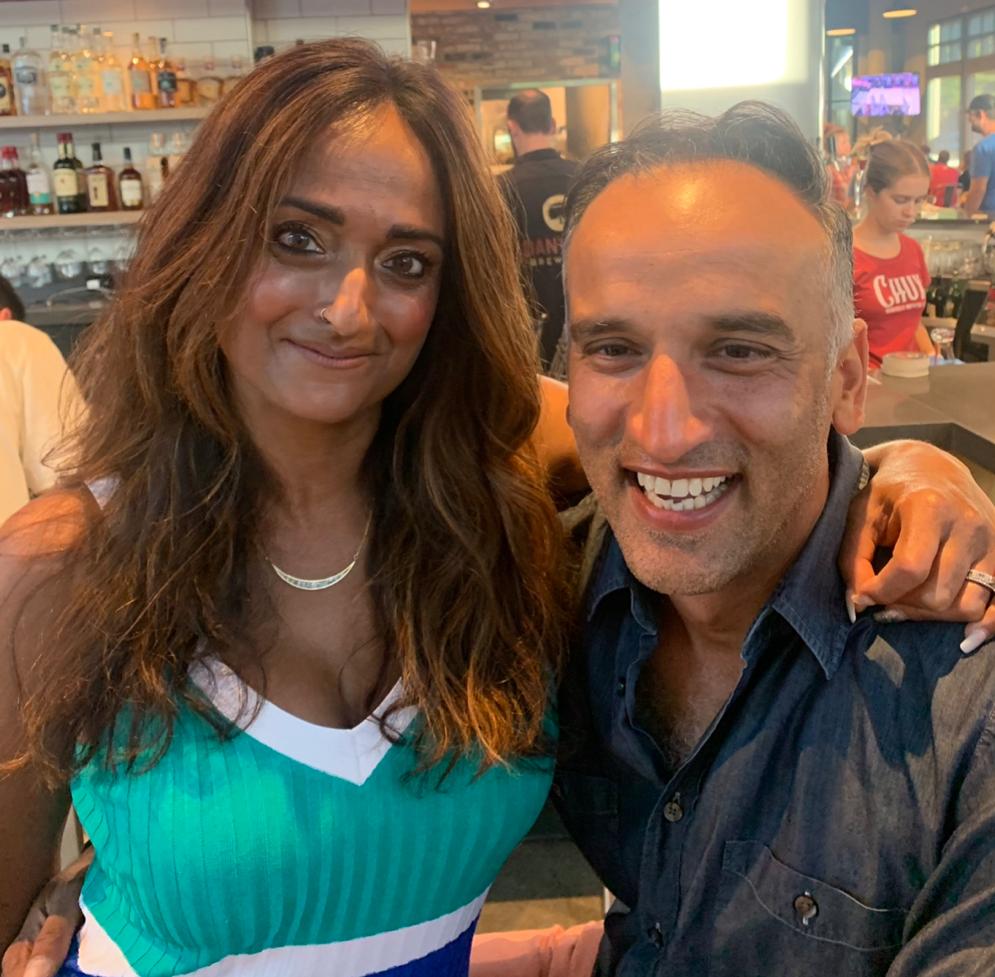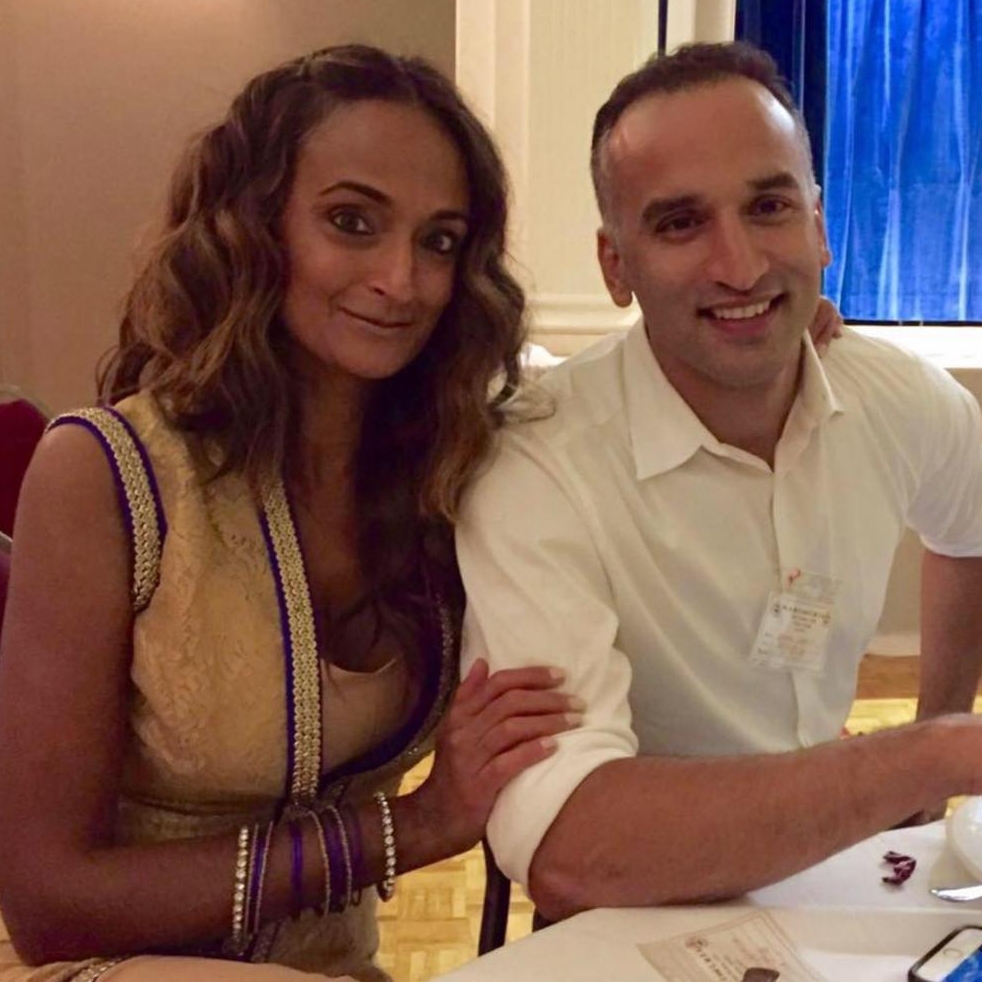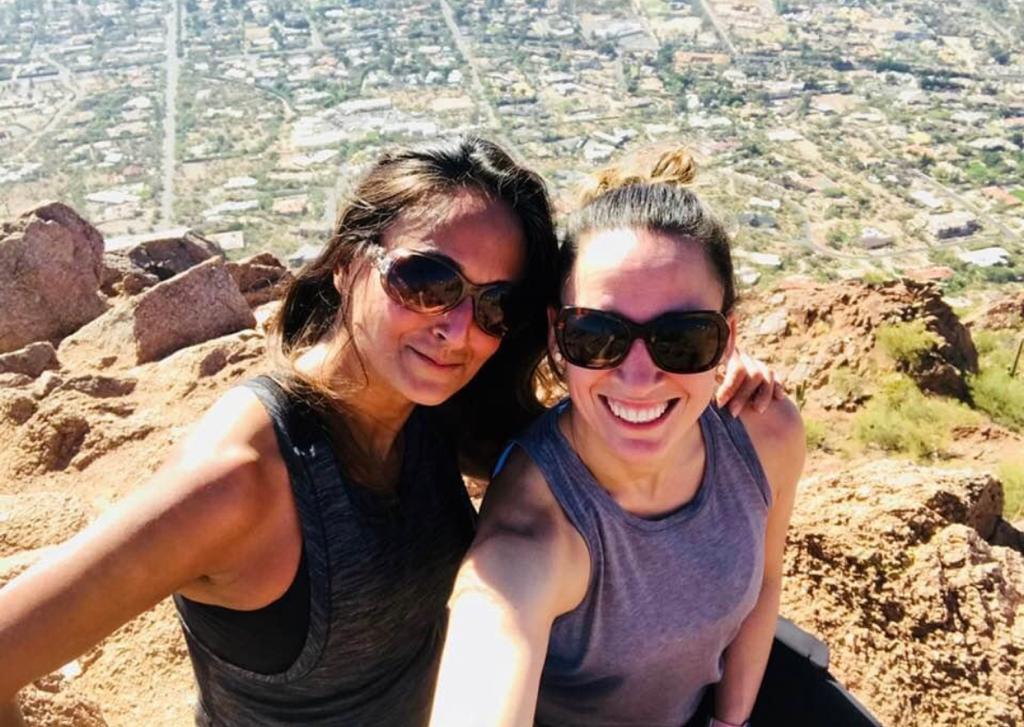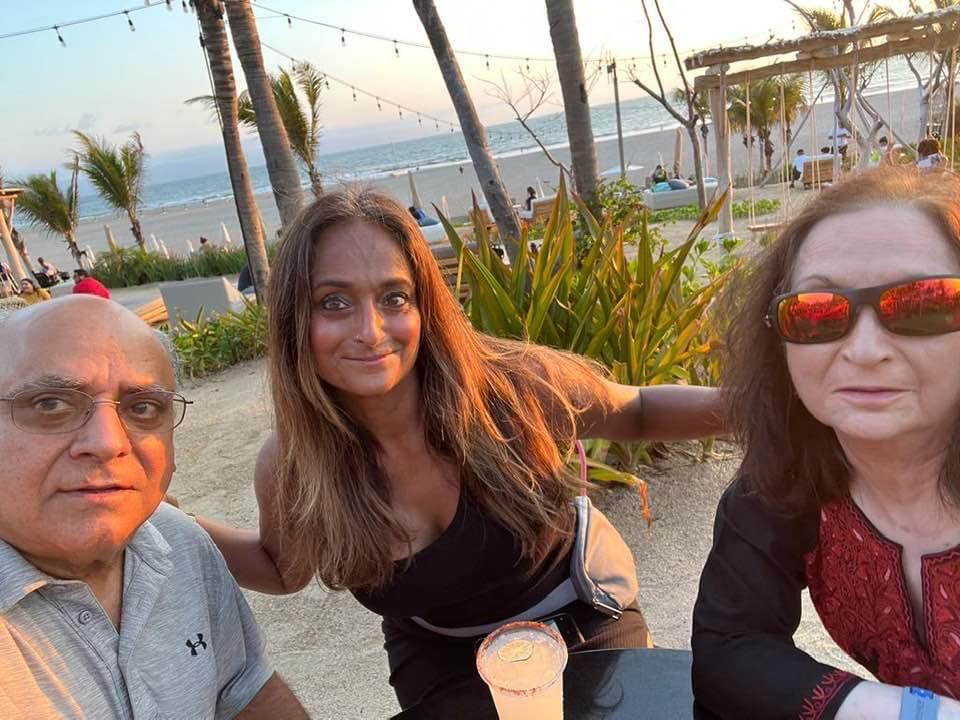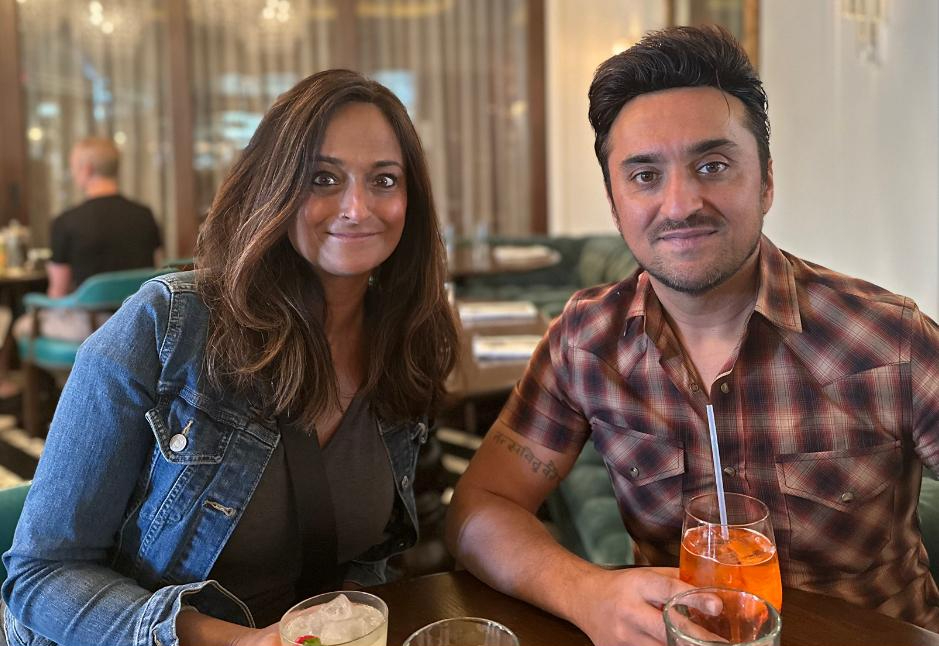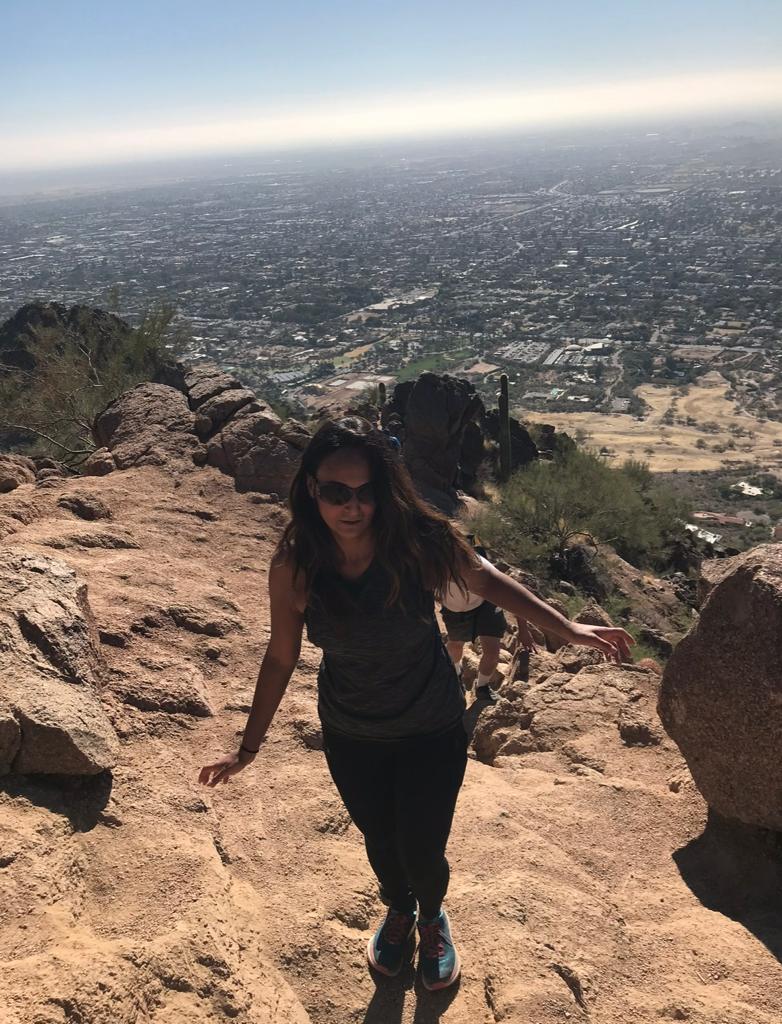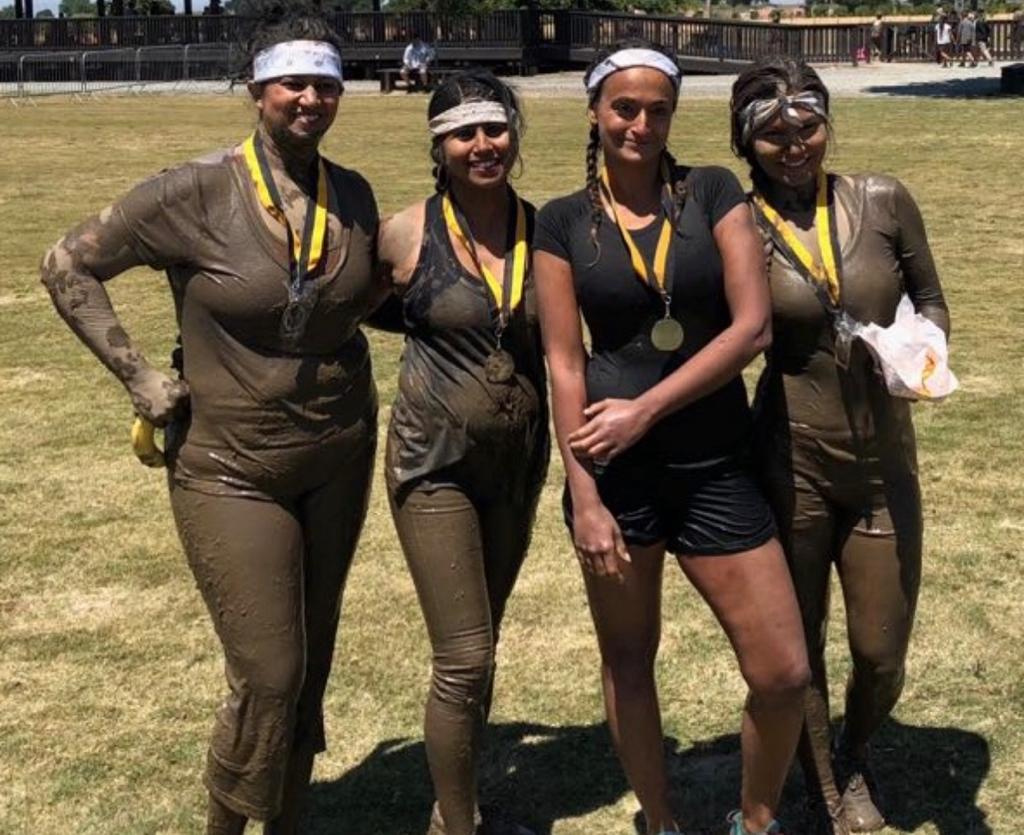Luisa Ruiz Kulig
Florida (United States)
LUISA RUIZ KULIG
Scleroderma Stories Issue 5
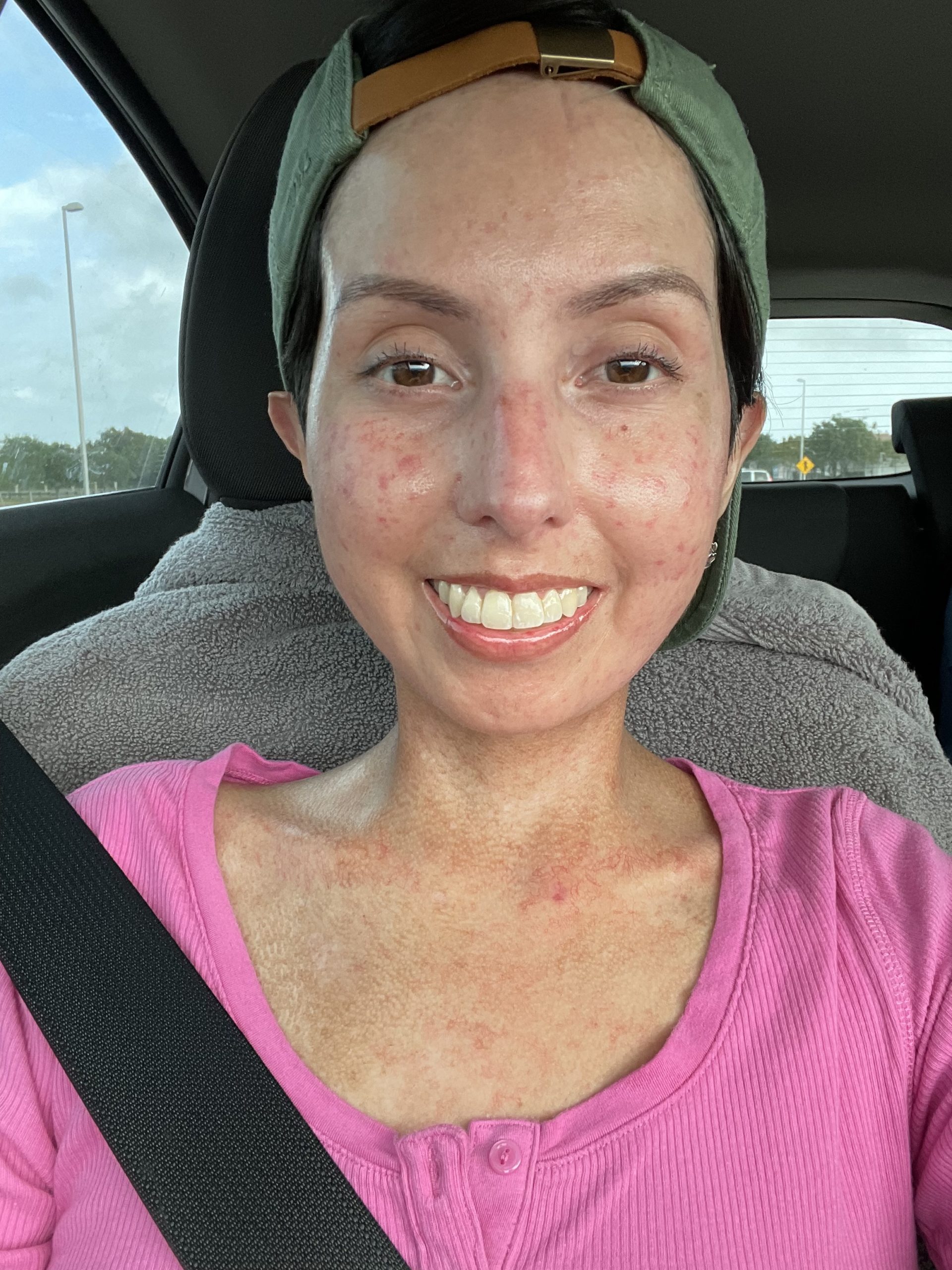
Please introduce yourself
My name is Luisa, I’m currently 34 years old, and I live in Florida. I was diagnosed with scleroderma in April 2021. My hobbies include spending time with my two mini schnauzers, going for rides in my little electric scooter for some sun, cooking/baking, and catching up on technology that can help me with my disability!
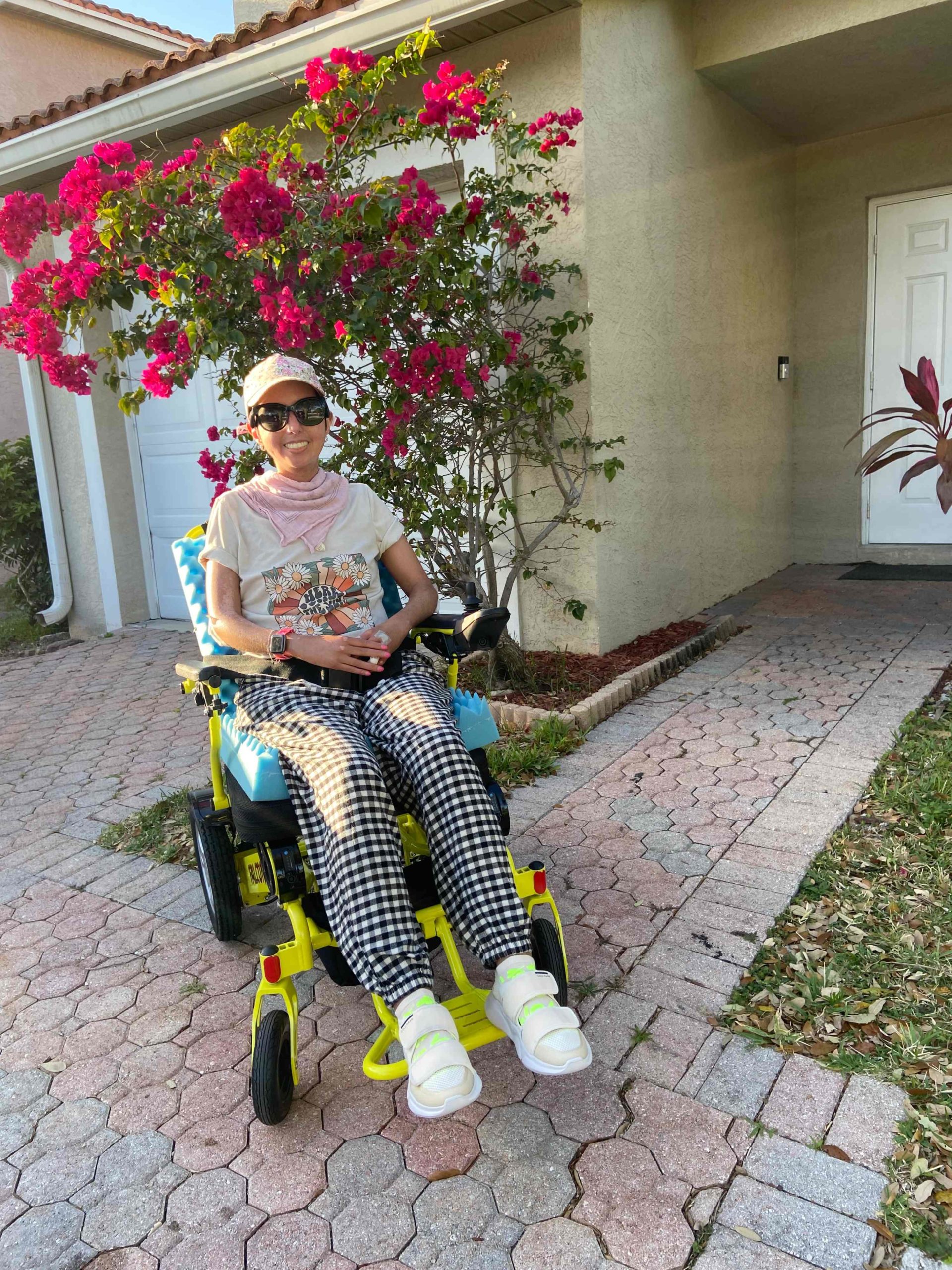
How did your scleroderma diagnosis come about?
I got diagnosed two years ago, and I started feeling my symptoms about six months prior (in June of 2020). Before that, I had never taken a pill in my life. All I had were stomach issues since my childhood. When I was born, I couldn’t tolerate regular formula and could only drink the soy one. Now, I think that was something that I should have checked out, because I believe the gut system has a lot to do with autoimmune diseases. However, before my diagnosis I had a relatively normal life.
One of my first symptoms was chronic UTIs (urinary tract infections). I explained to the doctors that, “I’m literally just putting on pants, and I’m getting a UTI!” My doctor said, “you have chronic UTIs.” She would prescribe antibiotics and would tell me that there was nothing they could do. During the pandemic, I then started noticing problems with my wrist not being able to move. I believed it was just minor pains from typing and getting old, but it then progressed into swollen fingers. I thought it was stress, but then I had to get my wedding ring removed by a jeweler because my fingers were so swollen.
Shortly after that, my knee joints had problems as well. After that last episode, my father – a pathologist – told me to get my immune panels checked. That was back in December 2020. When I finally got my blood test results, the doctor told me that my ANA was positive (a sign of an autoimmune disease), and that they had to check for everything at that point. At that point, I didn’t really understand that my life was about to change forever.
I was immediately referred to go see a rheumatologist. The first doctor I went to see was in February of 2021, and after numerous blood tests she diagnosed me with rheumatoid arthritis. However, she dismissed certain symptoms that I shared with her. For example, I had cuticles that were very thin and had little brown dots. Something just didn’t feel right. I couldn’t bear the idea that the doctor handed me three brochures with different medicines and told me to pick. After that, I decided to get a second opinion.
I went to the Cleveland Clinic a month later. During my visit with my second rheumatologist, I showed him my cuticles that the previous rheumatologist had dismissed, and he immediately took me to a room full of doctors, asked me to put my fingers under a tiny microscope, and right away he said “I believe you have scleroderma.”
Of course, once I got home, I went ahead and googled scleroderma and thought: My life is over. At my follow-up appointment in April, he said that I had systemic scleroderma – the version that affects the entire body.
I remember leaving the clinic feeling like somebody had stolen my soul. I didn’t know what to feel. I just felt empty inside. I felt like I was in the twilight zone. The doctor then told me that there’s not any specific treatment for this disease but that the goal was to slow down the progression. Immediately, I felt like my clock started ticking. The following month, I had millions of tests, such as testing my lung capacity, my esophagus, and everything else inside.
I asked the doctor to check if I needed to see a dermatologist, but he said there was no need. Two years later, I wish I could have started with a dermatologist right away – not because they would change the treatment, but because they have better ways to manage certain conditions of your skin.
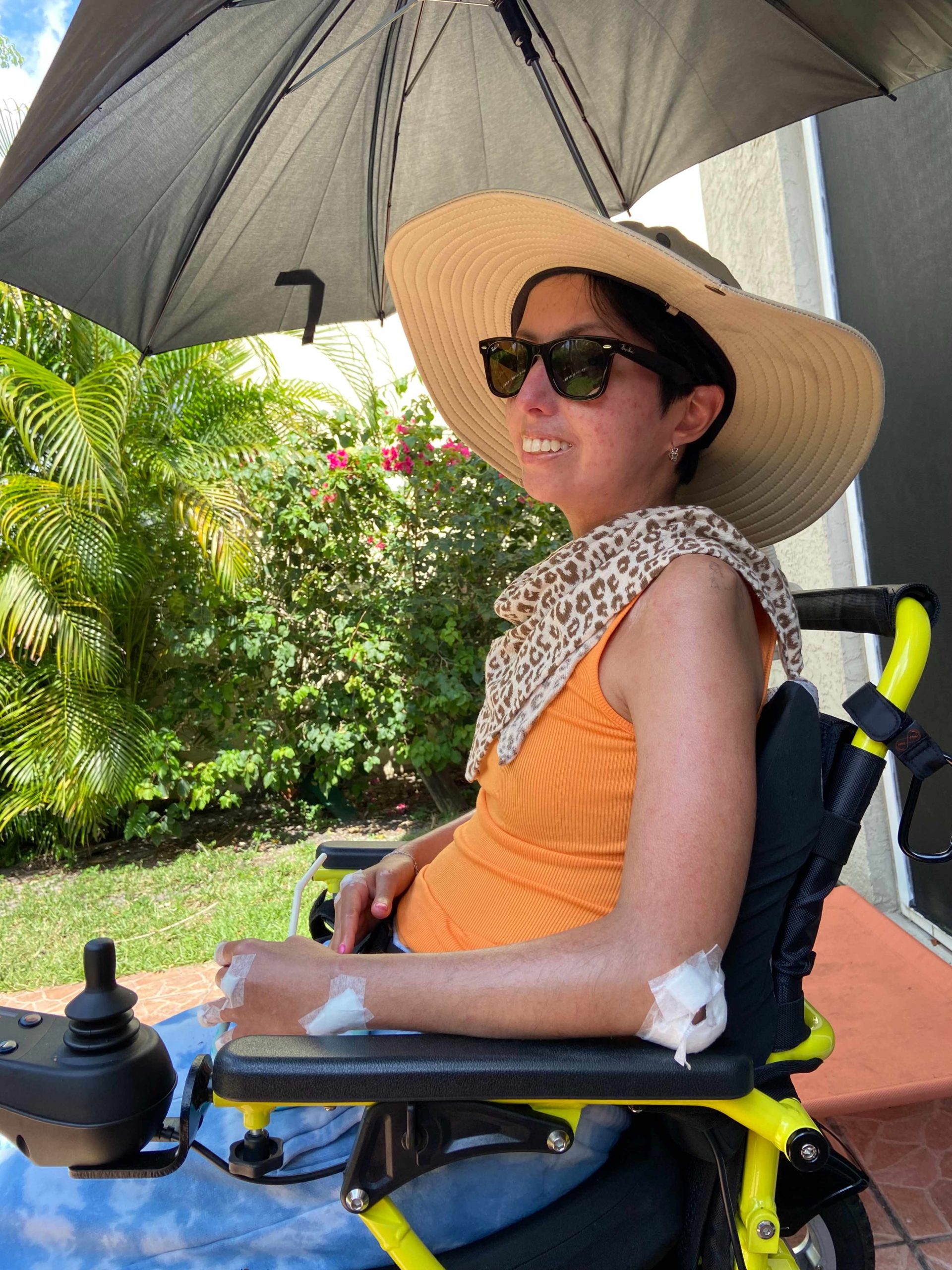
What’s the hardest symptom that you have to deal with?
Firstly, losing my mobility has been the hardest symptom. It’s taken away my independence. I can’t stand on my own, I need assistance for walking, and my knees are like a rock. Not being able to rely on myself has been extremely hard.
I stopped working in September of 2021, because I couldn’t deal with the fatigue on my joints anymore. The stress that my job was bringing led to flare ups, and I would end the day with a fever. My doctor would ask me, “Can you monitor your fever?” and I’d think “I can’t believe that I went from a full on corporate recruiter to monitoring my fevers.”
At one point, when I was still working from home due to the pandemic, I would work laying on my bed, trying to minimize the pain. I’d take a quick nap in between calls and tell my candidates they could do the interview without video – not because I didn’t want to see them, but because I looked like a mess and couldn’t brush my hair or take a shower on my own. Looking back, I truly don’t know how I did it.
In mid 2021, they asked me to start coming into the office. It was hard because my symptoms were invisible. People didn’t believe me because I wasn’t bleeding or anything. My biggest fear was going outside to use the bathrooms. I would rarely drink liquids during the day so I didn’t have to go. The one time that I had to go outside, I was almost in tears, because I felt like I was going to faint and not make it back into the office. It was really difficult for me. I felt so hopeless and fragile. Almost like my entire world was collapsing in front of my eyes.
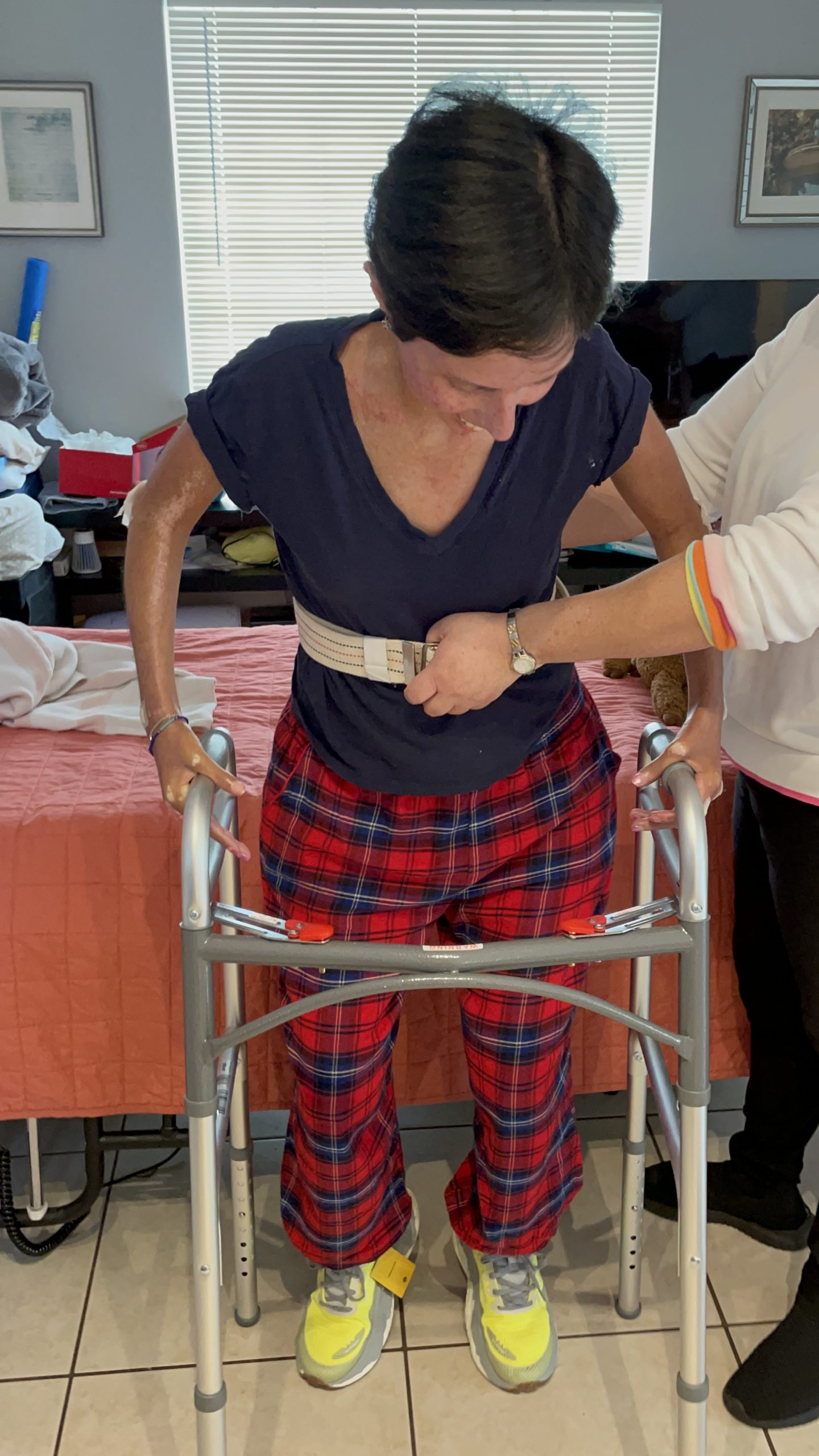
What treatments or medications have you tried?
I started with mycophenolate in pill form (more commonly known as Cellcept) and 5 milligrams of prednisone. Shortly after my diagnosis, I started losing my mobility really quickly. I had talked to my then rheumatologist, and he said it was normal. It almost felt like he could care less. That’s when I decided to see another doctor. The day of my appointment with the new doctor, she walked in and took a look at me and immediately started working.
She ordered all kinds of tests, including leukemia. After confirming I didn’t have cancer, she started me on Rituxan infusions every 4 months. This has become a common drug to use for scleroderma.
Who did you go to when you needed support?
My entire family, including my dogs. They all saw my health decrease slowly and gave me a push to show me that things would get better and I could still live with this disease.
My family, with their medical background, were a little more shocked than me. I still didn’t understand what scleroderma could do to me, but my dad – who went to medical school – was really devastated. My family is my rock. They have been there since day one. I don’t know if I would still be here without their unconditional love and support. When I started feeling fatigued and started having issues walking, my dad gifted me a transportation wheelchair. However, I was not too happy. I just couldn’t accept the idea of losing my ability to walk.
It is hard dealing with that loss, and you can become a very angry person. You’re trying to process everything but you can’t. My body had declared war on me, and I just had to keep trying to survive. The first months/years are extremely important to have a loved one advocate for you because, with all the pain, it’s hard to process everything alone.
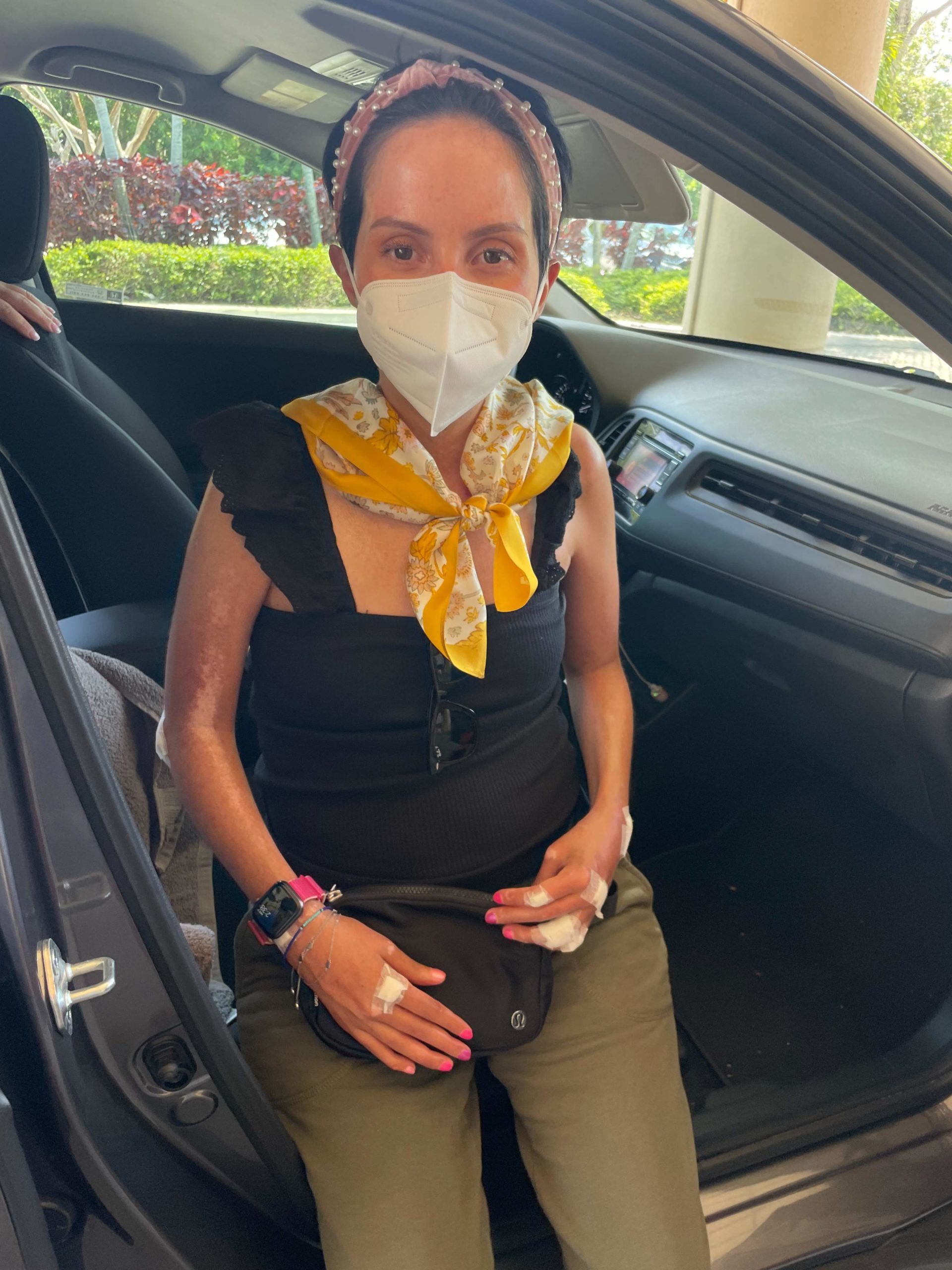
How have you adapted your hobbies/interests?
In April of 2022, after visiting the ER twice within a week period, I was hospitalized for the first time. I had lost about 25 pounds, and my stomach was slowly giving up on me. In the emergency room, the doctor told me I had a bowel obstruction.
That night was a first for a lot of things. They told me they had to put a tube up my nose, to pump my stomach out. For that, they had to give me morphine. This was my first time receiving this kind of painkiller. I came to find out I was allergic, because my chest started closing and my skin was burning. On top of that, the doctor told me I had aspiration pneumonia from the vomiting.
Five days later, they discharged me. I had conquered my first ever hospital stay. I had to share that story because after that all, I had a big awakening. I left the hospital saying “Screw the sadness. Screw feeling sad for myself or thinking that death is tomorrow, because you just fought for your life.” I decided to start being me again and enjoying things in a different way. Shortly after my husband had left for Chicago to pursue a new career opportunity. In order to keep moving forward, I had to get a third-party aid to help me with my daily activities and needs. Getting an aid was really scary. I had to step out of my comfort zone, and it really pushed me to be more confident and myself again.
One day after a year of hiding, with the help and encouragement of my psychologist, I decided to make my first social media appearance and show the world who I was and how I look now. There was no turning back. This time was real, and whoever wanted to be part of my healing journey would like me just the way I am.
Little did I know that I would come across my mentor and the most wonderful person on earth. She was the first person with my same condition that showed me we can still be human. So, I started doing yoga with Rachel (whose Instagram is @sclerodermamama). She reached out to me when I made my first Instagram post. When I started working with her, I could barely lift my head at that point, and she taught me ways that I could work out safely. She helped me rekindle the love I had for sports.
I also love driving, and I started looking on social media for something that could give me the freedom and mobility I lost – an electric chair.
Most of all, I love baking. I started wondering if my aides would be comfortable being my “hands and feet.” They were so up for the challenge, and I felt very empowered with their help.
Long story short, I’m making cookies and dinner for my parents. It’s brought me a sense of relief, that I can still be useful. It’s something that I thought would never come back again. I’ve found a lot of alternative ways to do things on my own.
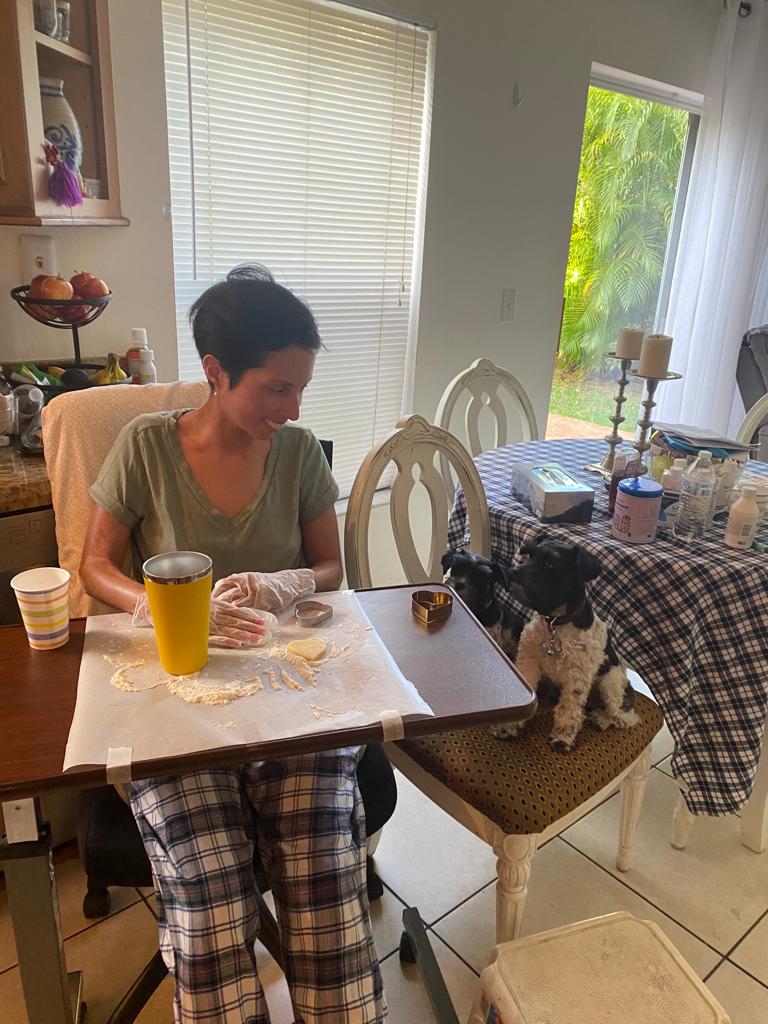
What are “tips and tricks” do you have to share with other scleroderma warriors?
I used social media to find a portable pilates set that was super adjustable. Now, I have so many alternative workouts. I also found that there was a dressing stick that could help me take off my clothes and dress myself.
Also, any kind of pregnancy bottoms, because they’re lower in the stomach and reduce pressure on your stomach. Local transportation, if you apply, can help you take your wheelchair for you without paying a lot of money. A month ago, I found a tool that can help me wash my own face, which is an absolute game changer for makeup.
Finally, technology has been one of my new passions that I love learning about. Specific Bose sunglasses that are actually headphones not only give me the freedom to listen to music and the privacy of conversations, but are also easy for me to use with scleroderma. Also, try getting a Google Nest, because it can help you control your house, give you security, and privacy with your commands.
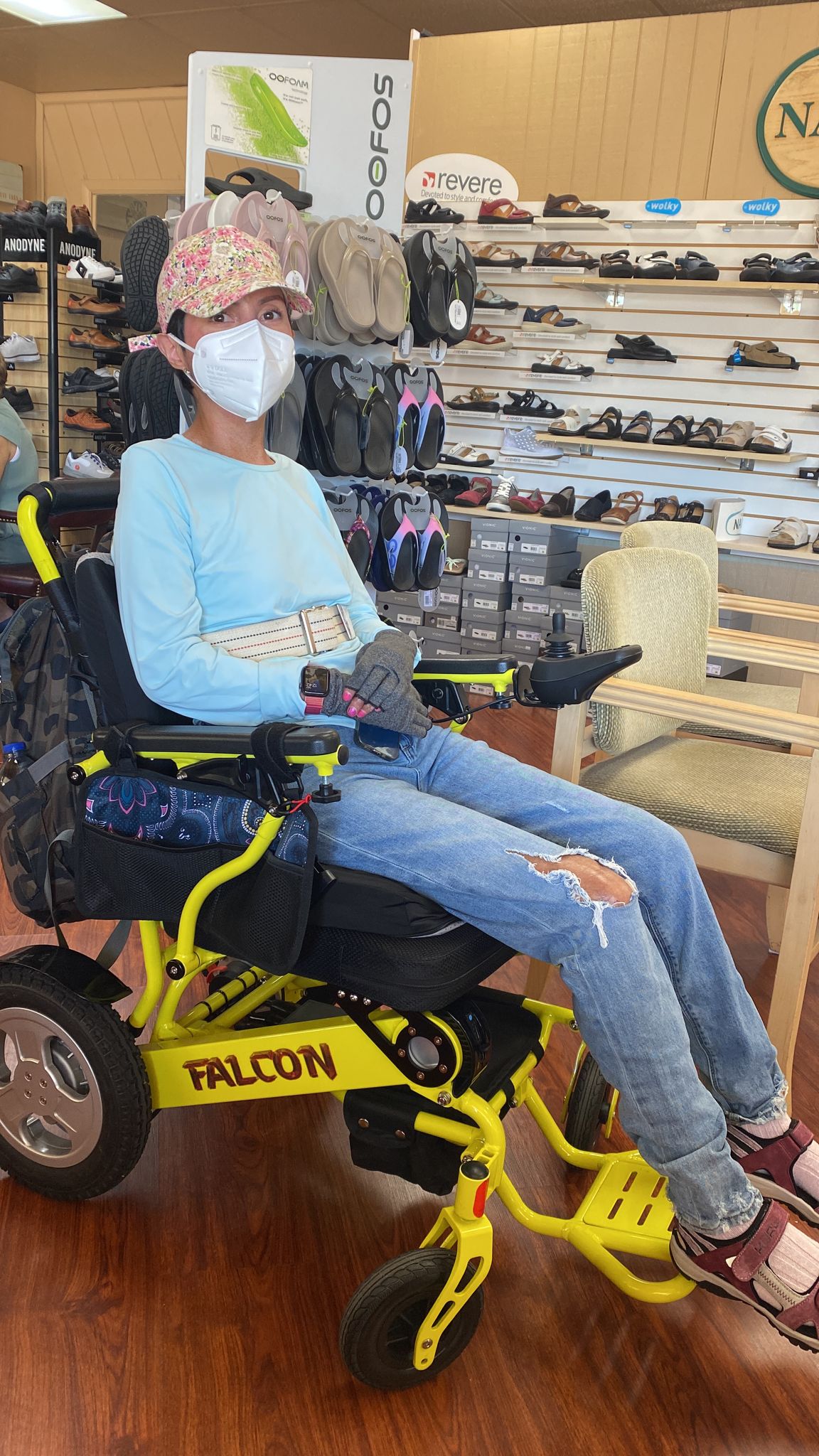
What advice do you have for people with scleroderma or other chronic illnesses?
The very obvious one is that your condition does not define you. I really wish I understood this back when I let my condition consume me to a point where it actually made it worse. It is harder said than done, but it is possible.
Mental health is also super important. Being able to get your feelings out of your chest, talking to someone qualified, is going to make you feel way better than holding it back. Be your own advocate/cheerleader, and don’t be afraid to raise your concerns to your doctors. The relationship has to work for both of you, and if it doesn’t, don’t be afraid to seek a second, third, fourth medical opinion.
Don’t chase your old self. Take this as an opportunity to start a new chapter of your life. Make peace with your conditions, and find the beauty in every day. Last but not least, learn how to love your body. Embrace it, kiss it, hug it. You are beautiful no matter what. Scleroderma could change your physical appearance but not who you are. Love yourself enough that you don’t need anybody.
Cheers to not giving up!
Be sure to follow us on Instagram and Facebook (@sclerounited) to see more scleroderma warriors’ journeys in our weekly Sclero Sunday series.
Are you a scleroderma warrior? We’d love to interview you for Scleroderma Stories! Please visit tinyurl.com/share-my-sclero-story or email us at contact@sclerounited.us

